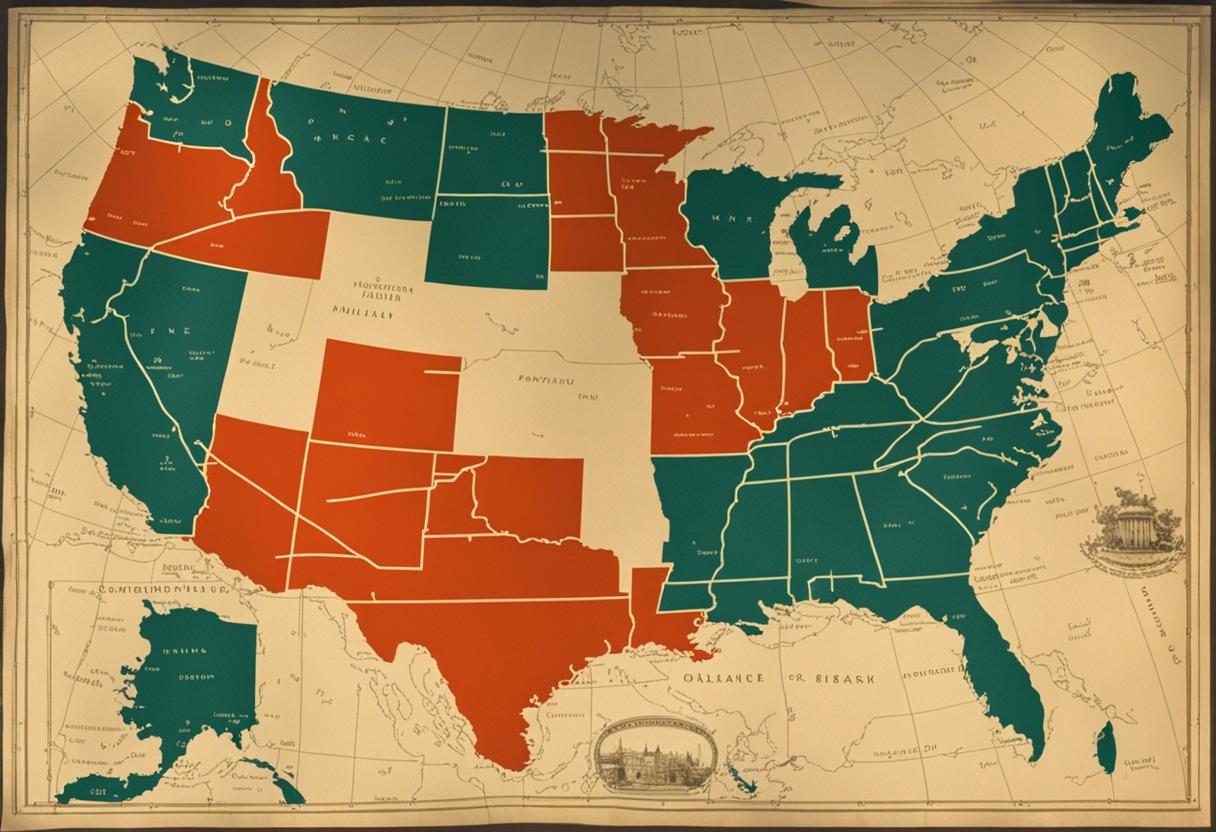Joe Biden’s poor performance in the debate has resulted in turmoil for the Democratic presidential campaign. Originally viewed as an opportunity for the president to secure an advantage, his lacklustre showing has instead inspired doubts about his capability to serve another term in office. Furthermore, it has highlighted the potential danger of a second term for Donald Trump, a prospect feared to be significantly more detrimental to economies than his first term, a situation that Ireland and Europe must contemplate seriously.
The predicament the Democrats find themselves in is severe. Swapping Biden at this juncture comes with its own complications and unpredictable outcomes. However, retaining him can also pose substantial risks. This dilemma of sticking or twisting with Biden is a significant challenge for both the party and Biden himself. Meanwhile, this allows the Republican candidate to capitalise on the situation.
Contrary to expectations, the economic turmoil during Trump’s first presidency, marked by his frequently controversial rhetoric on Twitter, now defunct, was less dramatic. Despite a trade dispute with China and his choice to withdraw or disregard multiple multilateral organisations, the upheaval was lesser than anticipated. His substantial tax reform package was argued to increase taxes in countries like Ireland, home to many US companies, despite its controversy for supporting big business. Notably, investment from the US surged towards Ireland during his first term, resulting in a significant increase in corporate tax receipts.
A second term for Trump appears to be more menacing, with a clear intent from his advisors to establish control and implement a more extreme set of policies covering the economy, immigration, abortion, foreign affairs and more. Such proposed economic policies would pose substantial disruption and damage. Being the European host to many major US companies and having a trade-based economy, Ireland stands at risk. It’s impossible to quantify the extent of this risk. However, the economic threat from ‘Trump 2.0’ could have significant implications for Ireland.
After Biden’s disastrous performance in the debate, a second term for Trump looks more likely – an occurrence that could have severe repercussions for Ireland.
The cornerstone of Trumponomics is economic nationalism and enhanced self-sufficiency, signalling a retreat from the globalisation movement prevalent over the last half-century. Trump suggests a financial “uncoupling” with China, comprising import dues of 60%, effectively rendering many Chinese products financially impractical. But Trump’s strategies delve deeper, incorporating 10% duties on all US imports. Consequently, a trade war with China appears imminent, with potential friction with Europe and additional trade allies appearing highly probable. This would possess severe implications for Irish commerce with one of its key commercial allies.
Contrary to Trump’s beliefs, tariffs pose a hefty financial burden, accelerating inflation, limiting options and curtailing growth. Major US entities, including credit rating agency Moodys and leading investment banks, provide warnings of the possibility of a swift descent into recession for America’s economy. Trump’s immigration strategy, centred on the probable deportation of many people, would also result in significant economic turmoil.
The risks for Ireland in the face of a US recession and unstable global trading conditions are clear – with the country’s growth and revenue generation heavily dependent on exports and international activity of American enterprises. The prosperity of Ireland has been rooted in its role as a trading hub, reaping the rewards of increased globalisation. Comparatively, Trump’s economic approaches symbolise a revival of economic nationalism and retraction from this beneficial era.
The Biden administration has adopted similar policies, particularly significant in terms of its China strategy and new subsidies for US investments. However, Trump’s approach would escalate this to an entirely new dimension.
The tariffs and potential trade conflicts between the US and Europe bring into question Ireland’s exports to the US, including a substantial pharmaceutical trade derived from US multinationals based on Irish soil and then sold back to US consumers. There is significant investment and taxation at stake here. Trump’s corporate tax strategy, involving further deductions from the current US rate of 21%, would also demand close supervision from Ireland.
There is an unavoidable presence of China in global trade dynamics. American restrictions on the trade of high-tech semiconductors to China have already had a visible impact, as demonstrated in Irish trading figures from the previous year. This drop in semiconductor sales can likely be attributed to the regulations affecting Intel sales. It’s anticipated that future actions by Trump would escalate these issues further. Apple, although having diversified its production chain, remains heavily invested in Chinese manufacturing, with Ireland playing a pivotal role in this global dynamic. The relationship within the service sector is also critical, and the repercussions of American measures against ByteDance, TikTok’s parent company with substantial Irish operations, are yet to be seen. The Chinese firm has initiated a legal fightback.
Expanding further, could Ireland’s pursuit of Chinese investment, and its ties in trading and foreign policy with the nation, come under close scrutiny from the Trump government? This concern is already a live debate under Biden’s watch, as awareness in Ireland of US political sentiment about China, and the complex deliberations across party lines regarding the issue, is limited.
As global politics tend towards division into warring factions, opportunities may emerge for Ireland, a longstanding ally of the US, but such prospects come with their own challenges and dangers. The Irish approach of maintaining relations with all countries may prove to be untenable. Trump, a controversial and polarizing figure, returning to the helm of the world’s largest economy could significantly increase the chance of a detrimental split in the global economy into rival factions, and raise substantial political questions for Europe.
This could spell bad news for Ireland, renowned for being the consummate brokers of the global economy – characteristically like a high-tech Del Boy, trading with everyone.

